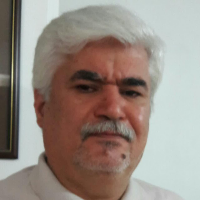Linguistic Functions of "Verb" in Lyrical Poems of "Mozneb Badayouni" Based on the Ideational Metafunction in Halliday's Functional Approach
Lyrical literature as one of the most widespread types of literature is presented in the context of the "literary and emotional" function of language and expresses the personal feelings and emotions of the "speaker". The purpose of this type of literature is to report and express the feelings of the speaker and at the same time, to please the audience. Each of the speakers of lyrical literature, according to the theme of their work, has used components that have given a lyrical color to their work and have distinguished it from other literary works. The methods of using lyrical elements in each of the systems of Persian literature are numerous and diverse. Factors such as "lyrical compositions and interpretations", "soft and delicate descriptions", "sad and isolationist atmosphere", "loving and beloved action", "inner monologues of the main character", etc. are the most manifestations of lyrical literature. This study tries to study the lyrical poems of "Badnauni's Sinner", one of the unknown poets of the return period, by using the ideational metafunction in the Functional Approach of Halliday. This lyric poet used different methods to express his lyrical thought, and it is noteworthy that he changed his attitude during his poetic period, and from his initial attitude, which was similar to the love poems of the Iraqi style house, in a period of his life he leans towards the view of the poets of "Maktab Voqou’". This study tries to answer the question that based on the paradigm of thought, the evolution of the worldview of the "Bedouin sect" in lyrical poems, what changes have caused the level of used "verbs"? Findings show that the change, decline, and ultimately degradation of the status of "beloved" as the main character of his lyric poems are shown through the reduction of the presence of this participle in "material and mental processes" and the high frequency of "interrogative clauses" which mean "reproach and exclamation".
-
A review of the medical poems of the manuscript "Masnavi Sadriyeh" by Ali Akbar
Zahra Rezazadeh, Nasrullah Zirak*, Zohreh Sarmad, Abolfazl Moradi, Aliakbar Afrasiabpoor
Journal Of Guilan University Of Medical Sciences, -
Investigation and analysis of fast reading skill as a stage of reading skill in Farsi and the necessity of teaching it to primary teachers
*
Journal of Research in Persian Language and Literature Education,


